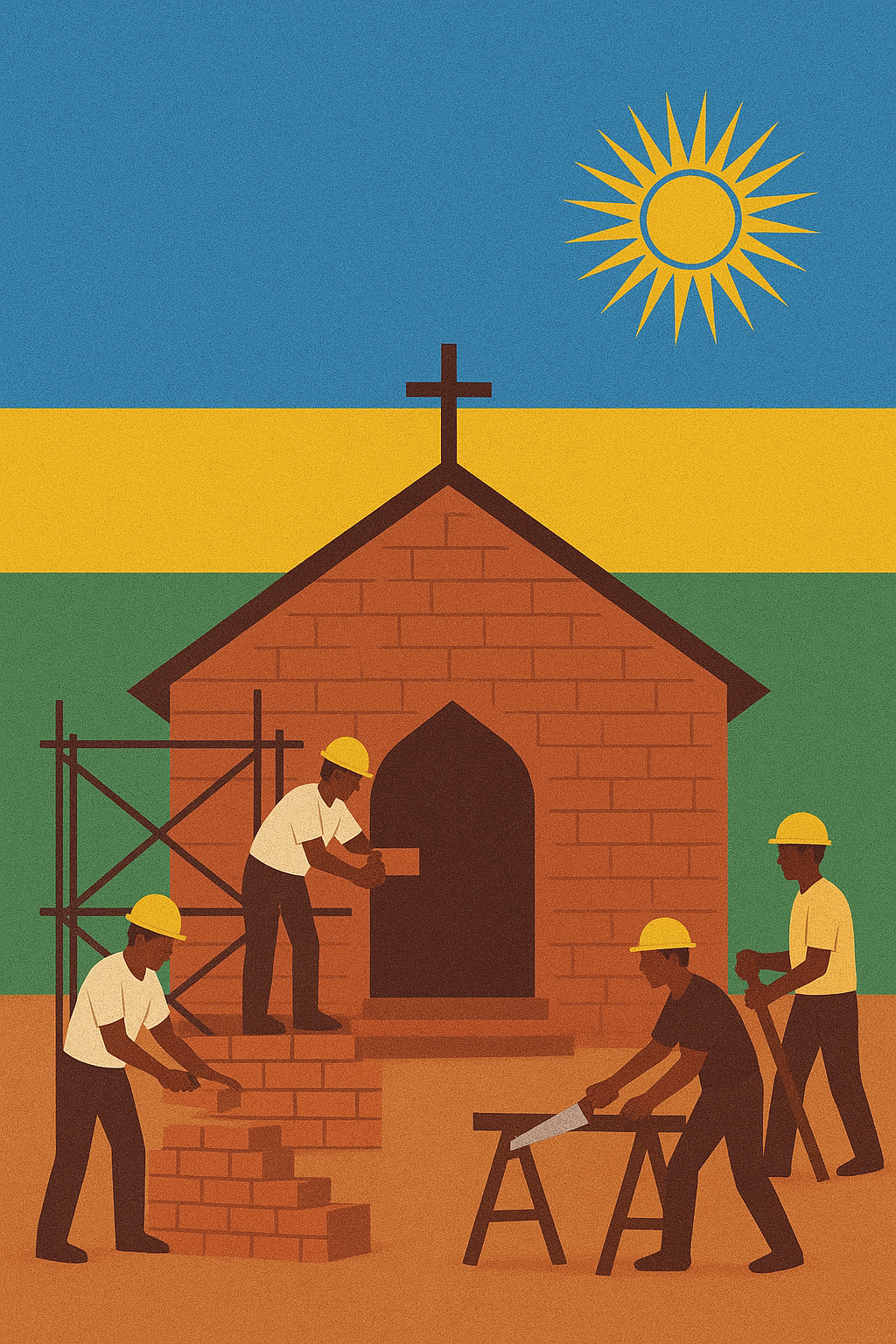
11
25Reimagining the Church’s Image: Building a Strong Christian Ecosystem in Rwanda
To be honest, there
are moments when I feel a deep sadness—sometimes even shame—at what I see
portrayed on Instagram, YouTube shorts, and viral videos in the name of Jesus
Christ. The image of Christianity in Rwanda has taken painful blows: from the
wounds left by the genocide, in which some Christians and clergy were
tragically complicit, to the present flood of self-proclaimed prophets who
trade divine truth for cheap theatrics.
We must admit it: the
moral and spiritual credibility of the Church has been weakened.
Rwandans—Christian and non-Christian alike—expect better from us. And though we
are not called to live by human applause, we are called to live by Christ’s
example. The world should see in us what Jesus meant when He said, “You are
the light of the world.”
But our light has
dimmed.
It’s not enough to
point fingers or lament from a distance. We need to reimagine, rebuild, and reinvest
in a strong Christian ecosystem—a living network of believers,
institutions, and initiatives working together to restore the public witness of
the Church.
There are institutions
to strengthen, new ones to create, and a holy fire that must awaken within us
if we are to reflect the glory of Christ again. Here’s where the rebuilding
must begin:
1. Sound Preaching
and Teaching
Weak pulpits lead to
weak believers. Many of our congregations have been fed a steady diet of
motivation, emotion, and empty promises rather than the living Word of God. The
result? A generation unable to discern truth from error, ripe for manipulation
by false prophets and prosperity peddlers.
When the pulpit is
sick, the whole body suffers. Without sound teaching, our believers cannot
think biblically, lead courageously, or serve faithfully. The Church loses her
prophetic voice in society, and our youth drift toward skepticism or shallow
faith.
We must raise a new
generation of preachers and teachers who handle the Word rightly—men and
women burning with truth, trained in Scripture, and bold enough to confront
error with love. Let us support theological training, invest in faithful
pastors, and demand depth in our pulpits.
Because our pulpits
have grown silent on the deeper questions of life, our classrooms, campuses,
and online spaces have become battlegrounds of confusion. Many young Rwandans
are walking away from the faith—not because Christianity is untrue, but because
they have never heard it explained clearly or defended intelligently.
Without apologetics,
our faith is easily mocked. Without apologists, our beliefs are easily
dismissed. But imagine a Rwanda where trained defenders of the faith speak in
schools, media, and policy forums—answering doubts, confronting falsehoods, and
showing that faith in Christ is both reasonable and relevant.
We need to raise,
fund, and deploy apologists who will engage the nation’s mind for the Gospel.
Because when faith stops thinking, it stops influencing.
Yes, we have Christian
journalists, radio stations, and worship songs. But where is the industry—the
robust creative movement that tells our story beautifully, truthfully, and
powerfully?
Right now, much of what goes viral in the name of Christ or about Christians is noise without substance—entertainment without sound doctrine. The Church’s image online is shaped not by our best minds or artists, but by our most outrageous performers. Of course, there is a remnant, but we are missing out on what could be: documentaries that inspire, films that tell redemptive stories, music that heals, podcasts that disciple, and visual art that speaks truth to power.
Imagine if we were creating training
spaces for Christian creatives. Imagine churches fund filmmakers, writers,
designers, and digital storytellers who can use their craft for Christ’s glory.
Because if the Church does not shape culture, culture will shape the Church.
4. Christian
Education and Intellectual Engagement
A nation’s future
belongs to the classroom. If our schools fail to form godly character and
biblical worldview, we are raising a generation that can code, debate, and
lead—but cannot discern right from wrong.
Yes, Rwanda has
Christian schools and a few theological colleges, but many are underfunded,
underdeveloped, and disconnected from society’s pressing needs. Our theological
institutions should not just train pastors; they should train thinkers,
advocates, researchers, and leaders who engage the world from a
distinctly Christian lens.
When Christian
education is weak, the Church loses her influence in government, business,
science, and the arts. We end up reacting to society instead of shaping it. But
when Christian education is strong, a nation begins to see what it looks like
when truth and wisdom kiss each other.
We must strengthen
these schools, fund their research, and encourage Christian intellectualism
that is both Rwandan in context and biblical in conviction. The biggest battle ground for shaping our society is within the schools and universities. Our presence in education must be felt!
The Cost of Doing Nothing
If we continue to
ignore these needs, we will keep losing our sons and daughters to cynicism,
secularism, and superficial religion. We will keep watching the name of Jesus
dragged through the mud by frauds and false prophets. We will keep being
spectators while other worldviews fill the cultural and intellectual vacuum we
have left behind.
But if we rise—if we
decide to build, support, and sustain a Christian ecosystem rooted in truth,
beauty, and integrity—the story can change. Rwanda can once again look at the
Church and see not a scandal, but a sanctuary. Not a stage for self-promotion,
but a community of hope.
Let every pastor
commit to preaching sound doctrine.
Let every teacher sharpen the minds of the next generation.
Let every creative tell stories of redemption.
Let every believer support those who labor to strengthen the faith.
This is our calling,
and this is our moment.
The future image of
Christianity in Rwanda will not be decided by our critics, but by our courage
to live, build, and create for the glory of Christ.






(3) comments
Nate
Excellent piece
Benks
Great thoughts from you Pastor Sam, the Rwandan Church would be blessed to have more like you. How do other Christians other than Pastor's reform the pulpit if they get a chance to hear the gospel "sound doctrine" before their pastors ?
Samuel Kwizera
Thank you for reading this, Benks. First of all, there is no shortcut to this. I would personally encourage the "Other Christians" to be in constant communion with their pastors. * Discuss with your pastors what you call the "Sound doctrine" and why it's needed in the church. * Consider the consequences of the "Sound doctrine" to the congregation you attend. * Trust God to use his faithful and loving approach to produce godly results in the hearts of those who are in the pulpit.